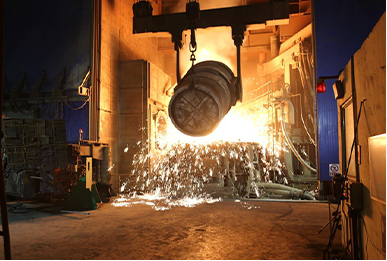Aug . 19, 2024 05:52 Back to list
Supplier of Refractories and High-Performance Refractory Materials for Industrial Applications
Refractories and Refractory Materials Supplier Meeting the Heat of Industry
In the manufacturing landscape, where high temperatures often define processes, the role of refractories and refractory materials cannot be overstated. These materials are essential for industries that involve extreme conditions, such as metallurgy, glass production, cement manufacturing, and ceramics. But what exactly are refractories, and how do they contribute to industrial efficiency? This article explores the significance of refractories and highlights the importance of selecting a reliable refractory materials supplier.
Refractories are defined as heat-resistant materials capable of withstanding high temperatures, mechanical stress, and corrosive environments. Unlike ordinary materials, refractories maintain their strength and physical integrity even when exposed to temperatures exceeding 1,500 degrees Celsius (2,732 degrees Fahrenheit). Their primary function is to line furnaces, kilns, incinerators, and reactors, thus protecting the structural integrity of these high-temperature units while ensuring optimal thermal efficiency.
The myriad types of refractories include fireclay, alumina, silica, zirconia, and magnesia, amongst others. Each type possesses unique properties suited for specific applications. For example, alumina refractories boast excellent thermal stability and mechanical strength, making them a popular choice in industries like steel and glass. On the other hand, silica refractories are highly effective in environments with high thermal shocks but are more susceptible to chemical corrosion.
Given the critical role refractories play in sustaining high-performance environments, selecting the right refractory materials supplier is paramount. A proficient supplier not only provides high-quality products but also offers technical expertise and customer support essential for effective implementation. Here are a few factors to consider when choosing a refractory materials supplier
1. Quality Assurance The quality of refractory materials significantly impacts performance and longevity. A reputable supplier should adhere to stringent quality control standards and certifications, ensuring that the products meet industry specifications and customer requirements.
refractories and refractory materials supplier

2. Technical Expertise A supplier with a deep understanding of the various applications and properties of refractories can provide invaluable assistance. They should be able to recommend suitable materials based on specific heat and wear conditions, as well as the chemical environment in which they will be used.
3. Customization Options Every industrial plant has unique requirements. A reliable supplier should be able to offer customized solutions tailored to the specific needs of the operation, whether in terms of shape, size, or thermal properties.
4. Comprehensive Support Services Beyond supply, a quality refractories supplier will offer extensive after-sales support, including installation guidance, maintenance advice, and troubleshooting assistance. This ensures that the refractory materials function optimally throughout their lifespan.
5. Sustainability Practices As industries evolve towards more sustainable practices, finding a supplier that sources or manufactures environmentally friendly refractory materials is increasingly important. This includes the use of recycled materials and energy-efficient production processes.
In conclusion, refractories are indispensable for high-temperature industrial applications, serving as the backbone of efficiency and safety in various sectors. Partnering with a trustworthy supplier can make a significant difference in operational success, cost-effectiveness, and prolonged equipment life. Therefore, industries must invest time and resources in selecting a supplier that not only meets their material requirements but also aligns with their strategic objectives in a competitive market. With the right refractories and a competent supplier, industries can confidently face the heat of their processes, ensuring resilience and performance in challenging environments.
-
Premium Thermal Insulation Cups Materials Exporters & Suppliers
NewsJul.26,2025
-
High-Performance Tundish Dry Vibrator for Steel Casting
NewsJul.25,2025
-
Top Carbon Petroleum Coke Exporters – Reliable Manufacturer & Supplier
NewsJul.24,2025
-
Environmentally Friendly Granule Covering Agent for Sustainable Solutions
NewsJul.23,2025
-
High-Performance Tundish Dry Vibrator for Continuous Casting
NewsJul.22,2025
-
First Bauxite Exporters | Top-Quality Global Supply
NewsJul.22,2025
